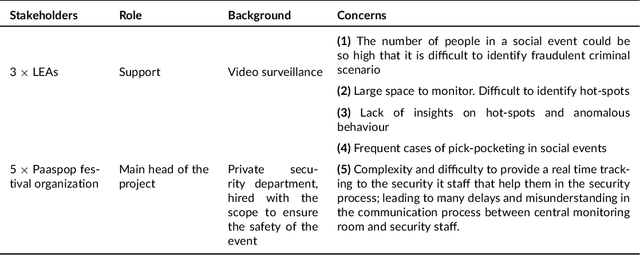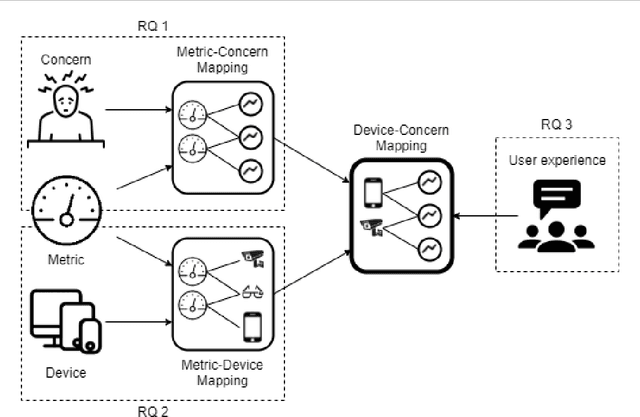Internet-of-Things Architectures for Secure Cyber-Physical Spaces: the VISOR Experience Report
Paper and Code
Apr 01, 2022



Internet of things (IoT) technologies are becoming a more and more widespread part of civilian life in common urban spaces, which are rapidly turning into cyber-physical spaces. Simultaneously, the fear of terrorism and crime in such public spaces is ever-increasing. Due to the resulting increased demand for security, video-based IoT surveillance systems have become an important area for research. Considering the large number of devices involved in the illicit recognition task, we conducted a field study in a Dutch Easter music festival in a national interest project called VISOR to select the most appropriate device configuration in terms of performance and results. We iteratively architected solutions for the security of cyber-physical spaces using IoT devices. We tested the performance of multiple federated devices encompassing drones, closed-circuit television, smart phone cameras, and smart glasses to detect real-case scenarios of potentially malicious activities such as mosh-pits and pick-pocketing. Our results pave the way to select optimal IoT architecture configurations -- i.e., a mix of CCTV, drones, smart glasses, and camera phones in our case -- to make safer cyber-physical spaces' a reality.
 Add to Chrome
Add to Chrome Add to Firefox
Add to Firefox Add to Edge
Add to Edge